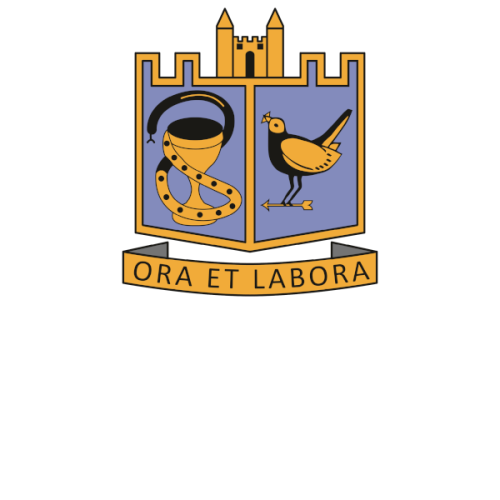Music
Subject coordinator: Mrs Orme – s.orme@stbenedicts.essex.sch.uk
The Music curriculum at St Benedict’s Catholic College develops students’ performance, listening and compositional skills. It is designed as an inclusive curriculum where it is not compulsory to attend music lessons outside of school to take music pathways and GCSE, however, it does help. It can be accessed and enjoyed by all abilities. We explore a wide range of performance skills, keyboard, voice, ukulele, guitar and African hand drums and a well-equipped department provides class size amounts of each of those instruments, ensuring each individual student has experience at playing the instrument. We learn from an eclectic range of music styles, from classical to pop, world music to film music and by listening to these styles we build on the students’ analytical skills, studying musical and contextual features of each style. Students also can compose music in these styles. They have an opportunity to be creative and find their own voice in their original music.
Music at St Benedict's is a vibrant, well-equipped department which gives students a platform to shine and thrive through their own individual creativity.
The music room has a class suite of keyboards and computers with the music software Cubase. The department has a class set of ukuleles, guitars, African hand drums, and boomwhackers. The department also has a fully equipped recording studio, live room and two practice rooms.
The department has a wide variety of extra-curricular clubs at lunch time: Choir (who perform at whole school masses and assemblies, Rock School, Jazz Band, Ukulele Club and Music Theory Club.
In collaboration with the drama and art Departments, the music Department produced a whole school musical, Godspell, and plan to perform a whole school production every year.
Peripatetic music lessons are available at St Benedict’s through Essex Music Services. Application forms are available on the school website. Lessons include, piano, flute, saxophone, violin, guitar, drums, trumpet and vocals.
St Benedict’s Catholic College music department use an online learning platform called Musical Futures. This is an amazing interactive resource that students can access at home (please see further information below.) Musical Futures has a wide range of practical activities to help students’ performance skills. It also has a large song bank where students can play along with popular songs. Students can play instrument or sing along with the track.
https://www.musicalfutures.org/
Student login details:
Username: student-stbenedicts
Password: Music@StBens123
Password is CAPS sensitive.
Throughout Key Stage 3 music, all students will have the opportunity to learn basic keyboard and ukulele skills. They will also be introduced to music notation and be able to sight read simple pieces on the keyboard and learn to decipher chord diagrams for the ukulele. They will also use their voice, either singing as a group or solo or rapping. They will also listen and appraise music using their understanding of the elements: pitch, duration, timbre (instruments), tempo, texture, tonality and structure.
Having acquired basic instrumental skills in year 7 and 8, students taking the Music Pathways course will begin to choose their specialism in performance if they have not chosen already. They will also be introduced to playing the guitar, building on their performance skills from Year 8. They will perform regularly in groups and develop their compositional skills.
Home learning at KS3
KS3 music home learning is optional. Using Musical Futures students can listen to, perform and compose music using the interactive activities.
Year 9s can also use this resource as home learning but will also be expected to practice on their chosen instrument regularly and will be set other assignments, such as listening and composition tasks, from time to time.
What can parents/carers do to support at home?
Encourage your child to talk about the music they are currently listening to. Ask them to explain why they like it and what musical features interest them. If you have instruments in the house encourage your child to play them and to perform for you. They can use Musical Futures to learn new songs. If your child receives 1:1 music tuition, ensure they are practising regularly.
GCSE Music at St Benedict’s uses the OCR GCSE Music specification. 60% is coursework and students will record their performances and compositions in the school’s recording studio, this gives students a taster of the music recording industry. 40% of the grade is a listening exam and listening and appraising skills will be developed on a weekly basis.
Home learning at KS4
In year 10 and 11 it is expected that student practise on their chosen instruments at least 4 times a week and focus on their chosen piece for their GCSE coursework. Once a month there will be a performance lesson where the teacher will monitor their progress in performance. They will also be set listening exam style questions once a fortnight.
What can parents/carers do to support at home?
Encourage students to practise their chosen instrument regularly and encourage your child to perform their piece in front of you to get them used to performing to an audience.

